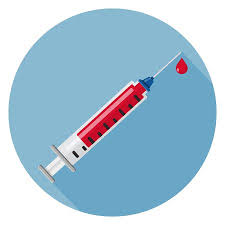 Though many don’t realize it, most Texas DWI cases involve blood tests rather than breath tests. This is in large part because of the fact that the law allows police to draw your blood by getting a warrant if you refuse to give breath or blood. Regardless of whether police drew blood as a result of consent or a warrant, there are many issues surrounding the reliability of the result of a blood test. This is in addition to the requirements for blood draws in Texas DWI.
Though many don’t realize it, most Texas DWI cases involve blood tests rather than breath tests. This is in large part because of the fact that the law allows police to draw your blood by getting a warrant if you refuse to give breath or blood. Regardless of whether police drew blood as a result of consent or a warrant, there are many issues surrounding the reliability of the result of a blood test. This is in addition to the requirements for blood draws in Texas DWI.
Fermentation
One of the main issues with blood tests is fermentation. The technical definition of fermentation is “the chemical process by which molecules are broken down anaerobically”. This can be described in simpler terms as the process where a substance metabolizes. Many people are familiar with the concept of fermentation related to making things like beer or wine. What many may not know is that blood can also experience fermentation. When a tube is old or defective, room air can get in and cause the blood to ferment faster. When blood experiences fermentation, it tends to result in a higher blood alcohol score.
For example, a fermented sample may return a result above .15 even though the actual alcohol content should be much lower. This is one explanation for why many people hear/see the blood result and say “I know I wasn’t that drunk”. Mimi has a background in science and has hands-on experience analyzing blood test results through education at Axion Labs and the UTA Shimadzu lab on gas chromatography. This is one reason why Mimi might request blood discovery for your case. What she finds in that discovery might show that fermentation or a host of other issues might be at play.
Other Blood Test Issues
There are a host of issues that can affect the reliability of the blood test or its result, including:
- Fermentation (see above)
- Contamination – for example, another substance mingles with the blood.
- Misidentification – for example, placing the wrong name on the tube. This can also happen when placing incorrect information on the tube..
- Improper Calibration – this occurs, for example, when the testers do not properly calibrate the machine used for testing.
- Expired Calibration – when the machine used for testing is out-of-date.
- Inaccurate Pipettes
- Inaccurate Dilutors
- Deficient Quality Control – when the technique is not properly supervised, or when the blood results are not double-checked before submission.
- Improper venipuncture (see video) – in other words, when the technician does not perform the blood draw correctly.
- Inaccurate calculations (at all levels including the calibration curve & margin of error). In other words, interpreting the data incorrectly.
See the below video for an example of proper blood draw procedure.
Mimi Coffey DWI Lawyer, blood test procedure
Mimi Coffey – DWI Defense Lawyer in Dallas County, DWI Lawyer in Tarrant County, DWI Lawyer in Wise County, DWI Lawyer in Johnson County, DWI Lawyer in Parker County, DWI Lawyer in Collin County, DWI Lawyer in Denton County

